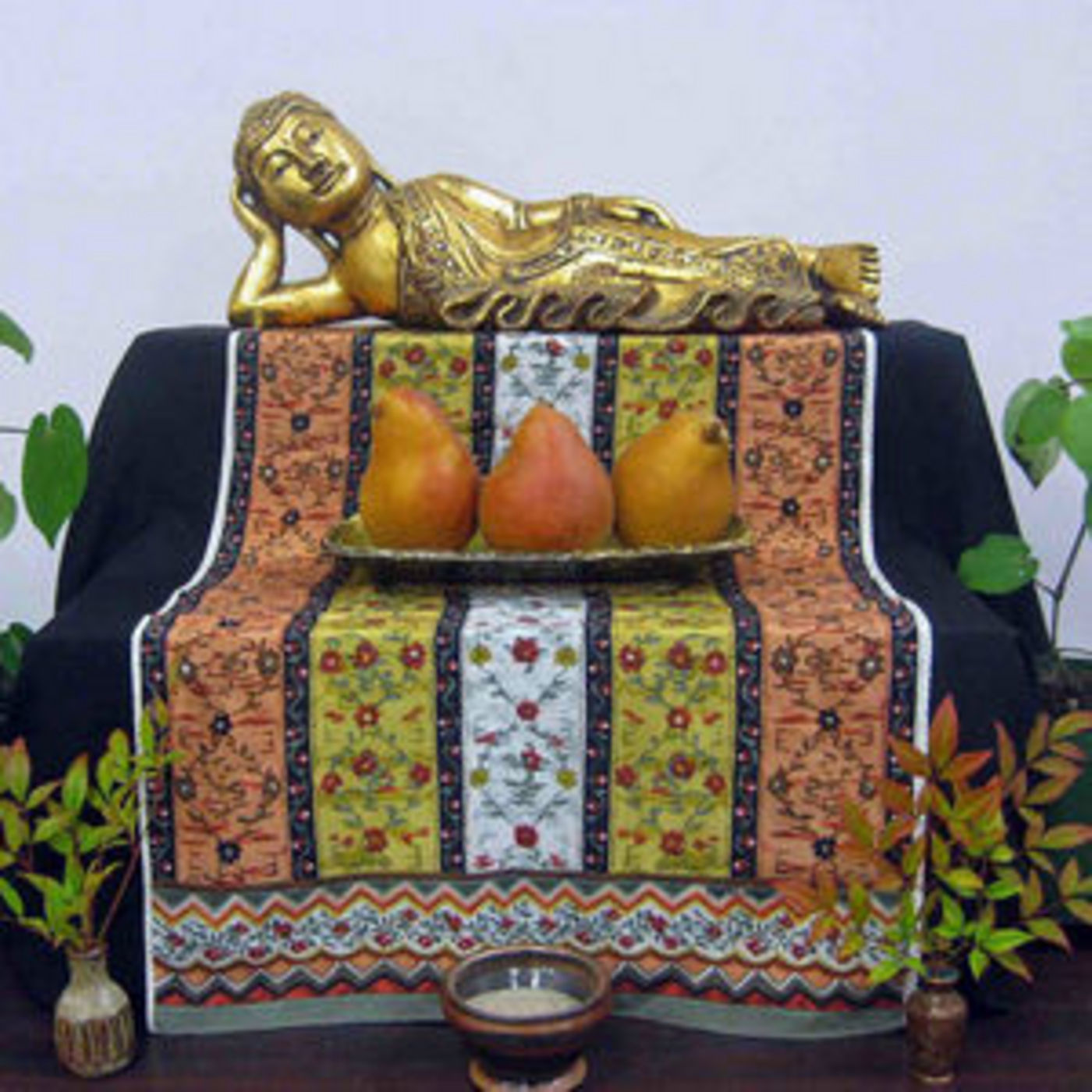
AZC Weekly talks
In this podcast you can find almost all the talks given at the Auckland Zen Centre, back to 2016. Most talks are by Roshi Amala Wrightson, but there are also talks from Sensei Richard von Sturmer and senior students too.
- Update frequency
- every 10 days
- Average duration
- 50 minutes
- Episodes
- 234
- Years Active
- 2018 - 2025

2025-01-05 Teachings of Tangen Roshi 2
Readings from: Ichi Tantei = One Doing / Tangen Roshi of Bukkokuji ; teisho translations by Belenda Attaway Yamakawa ; edited by Ron Klein.

2025-01-04 Teachings of Tangen Roshi 1
Readings from: Throw Yourself Into the House of Buddha : the Life & Zen Teachings of Tangen Harada Roshi / translated by Belenda Attaway Yamakawa ; edited by Kogen Czarnik.

2024-11-26 The Nature of Mara.
Texts used in the teisho:
Karen Armstrong, Buddha
Stephen Batchelor, Living with the Devil
Nyanaponika Thera and Hellmuth Hecker, Great Disciples of the Buddha

2024-11-05 Remembering Parihaka
Educating ourselves about our colonial history can be a way of honouring Te Tiriti. We can learn much from Parihaka about waging peace and the power of non-violence, as Gandhi did.
Sources: Shifting G…

2024-10-27 Zen and Character Part Two (Sensei Richard von Sturmer)
Book quoted from: The Force of Character by James Hillman.

2024-10-15 Zen and Character Part One (Sensei Richard von Sturmer)
Book quoted from: The Soul's Code: In Search of Character and Calling by James Hillman.

2024-09-12 Subtle Sound 4
Daily life practice and "What is this and how did it get here?"
Sources: Meetings with Remarkable Women, Lenore Friedman, Shambhala 1987
Subtle Sound ed. Roko Sherry Chayat Shambhala 1996

2024-09-11 Subtle Sound 3
Painting legs on a snake
Sources:
Meetings with Remarkable Women, Lenore Friedman, Shambhala 1987
Subtle Sound ed. Roko Sherry Chayat Shambhala 1996

2024-09-10 Subtle Sound 2
Sesshin mind
Readings from Stephen Batchelor's Introduction to his translation of Nagarjuna's Verses from the Centre.

2024-09-09 Teachings of Nagarjuna 2 (Sensei Richard von Sturmer)
Nagarjuna's Verses from the Centre Part Two. In this teisho we concentrate on the verses themselves.
Sources: Verses from the Centre translated by Stephen Batchelor
The Unborn: Life and Teachings of Ze…

2024-09-08 Teachings of Nagarjuna 1 (Sensei Richard von Sturmer)
Readings from Stephen Batchelor's Introduction to his translation of Nagarjuna's Verses from the Centre. Nargajuna was an important Indian teacher and our 14th Zen Ancestor. Batchelor calls him "the …

2024-09-07 Subtle Sound: Teachings from Maurine Stuart Roshi 1
Mostly biographical material
Sources: Meetings with Remarkable Women, Lenore Friedman, Shambhala 1987
Subtle Sound ed. Roko Sherry Chayat Shambhala 1996

2024-09-03 Dharma Ancestors: Daiun Sogaku Harada Roshi (Sensei Richard von Sturmer)
Teisho by Sensei Richard von Sturmer
Readings from the autobiography of Daiun Sogaku Harada-roshi, Roshi Kapleau's first teacher.

2024-08-20 The Four Nutriments 3
Individual consciousness, collective consciousness, universal consciousness.
Sources: Zen and the Art of Saving the Planet by Thich Nhat Hanh, Rider London 2021, Canticle to the Cosmos video series by…

2024-08-06 The Four Nutriments 2
We can learn to guard our mind and nurture our aspiration by being careful of what we consume.
Source: Zen and the Art of Saving the Planet by Thich Nhat Hanh, Rider London 2021.

2024-07-23 The Four Nutriments 1
What we consume shapes us -- not just the food and drink that nourish our physical body but also the impressions of our five senses, what we long for, and what we think. We can learn to be mindful of…

2024-07-09 Questions of King Milinda (Sensei Richard von Sturmer)
Teisho by Sensei Richard von Sturmer.
The Milindapañha (lit. 'Questions of Milinda') is a Buddhist text which dates from sometime between 100 BC and 200 AD. It is a dialogue between the Indian Buddhis…

2024-06-28 Authorising a Teacher in Zen (Roshi Bodhin Kjolhede)
Morality, Awakening and Meditation -- that is, good character, prajna wisdom and daily zazen -- are what is looked for in a Zen teacher.
Teisho by Roshi Bodhin Kjolhede.

2024-06-11 The Three Treasures
All the other precepts we take at Jukai flow from our taking refuge in Buddha (realisation), Dharma (truth) and Sangha (harmony).
Various sources.

2024-05-28 Matariki Jukai - Right Speech
Some background on why we receive the sixteen precepts at Matariki. The importance of attending to our often harsh inner speech, and seeing through it.
Source(s): Advice Not GIven by Mark Epstein, Hay…